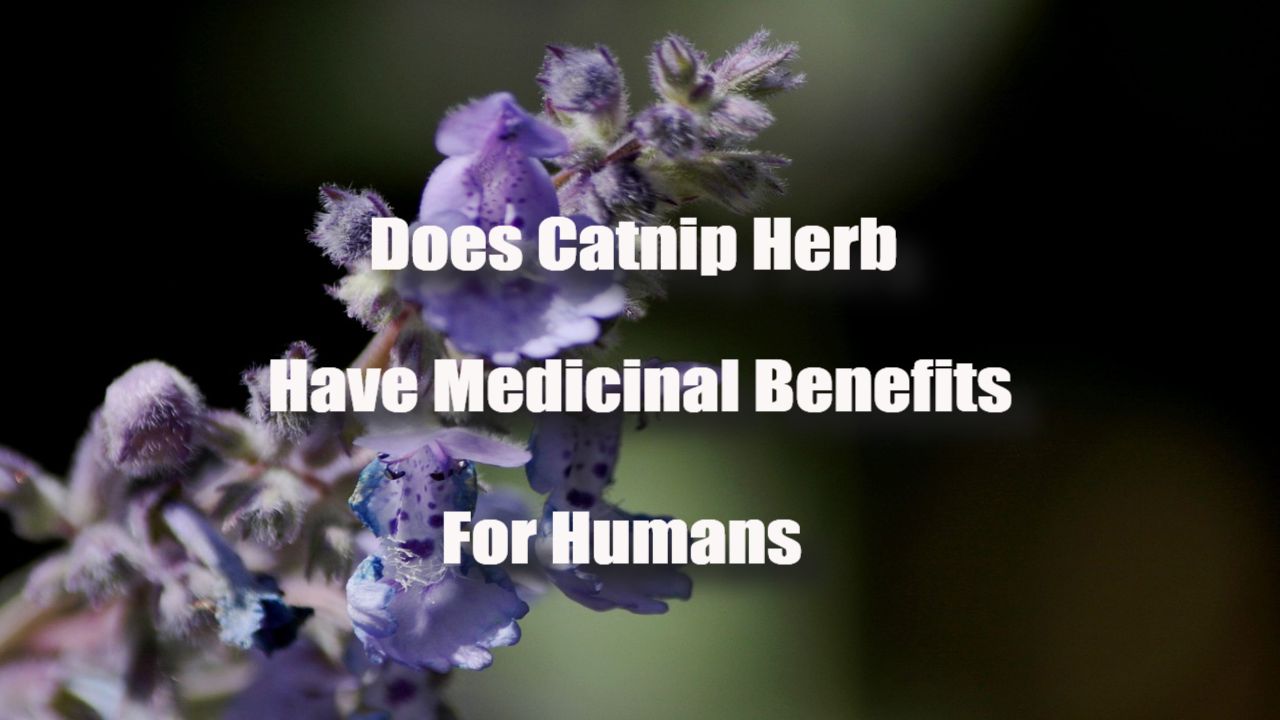Pet’s Health – To keep It In Good Condition.
Contents
- 1 Pet’s Health – To keep It In Good Condition.
- 1.1 Symptoms of Pet Anxiety
- 1.2 Irritation
- 1.3 When a dog sheds too much
- 1.4 The feeling of being lethargic
- 1.5 Assailantry
- 1.6 Inability or unwillingness to eat
- 1.7 6. A lack of passion
- 1.8 Negative conduct
- 1.9 a shift in bathroom usage
- 1.10 10. Sounds
- 1.11 It’s not just your pet’s health that can be a source of stress for them.
Pet’s Health – To keep It In Good Condition.
Pet’s Health – To keep It In Good Condition.:In honour of Stress Awareness Month, learn how to identify and alleviate your pet’s stress so that he can have a longer, healthier, and happier life.
Our dogs are no exception to the rule regarding stress: April is Stress Awareness Month for all living beings, regardless of species, human or otherwise. Are you astonished to learn that animals are affected by the same feelings of anxiety as humans? Exotic animals, as well as canine and feline companions, can all suffer from stress. As with human stress, pet stress can have adverse effects on health, well-being, and even the length of a pet’s lifespan.

Among other things, pet owners must exercise another aspect of pet wellness: determining whether or not the animal they own is stressed, identifying the causes of that stress, and then implementing ways to reduce stress and improve the animal’s overall quality of life.
Symptoms of Pet Anxiety
Do not assume that all of your pet’s stress symptoms are due to stress. To prevent yourself and your pet from future health issues and hefty vet bills, it is essential to investigate all possible treatment routes for your pet.
Irritation
If your cat or dog is scratching more than normal, there could be a number of reasons for this, you should consult a veterinarian, it could be an indication of stress as well as fleas, ticks, lice, or a skin allergy. Before considering that your pet might be stressed, rule out the obvious suspects such as fleas, ticks, lice, and allergies. Allergy relief for pets that may be delivered at home is available in natural health care treatments. Itching and pain from allergies can cause your pet to become worried, so it’s essential to treat and eliminate the allergy source to keep your pet from suffering.
When a dog sheds too much
The more stress a pet is under, the more likely it will shed. On the other hand, Shedding can be caused by a dog’s lousy diet, genetics, or a lack of exposure to sunlight. When the dog’s skin pores don’t close completely, hair falls out regularly, resulting in excessive Shedding. An essential vitamin-like Biotin usually is required for this. Alternatively, your pet may be suffering from excessive stress.
The feeling of being lethargic
Lethargic pets are a red flag and should be investigated immediately. Depression, poor health, lack of exercise, and sadness can lead to lethargy. Or perhaps your pet is in a state of high anxiety. A veterinarian typically requests a stool sample to determine the cause of this issue.
Assailantry
If your pet is aggressive because it is sick, injured, or in pain, it may be Stress has taken its toll on it.
Inability or unwillingness to eat
Stressed, unwell, or unhappy pets are more likely to consume less or stop eating altogether. If pet owners discover this, it is another issue that must be handled right once.
6. A lack of passion
Sick, melancholy, or depressed pets that abruptly lose interest in activities they previously found exciting or enjoyable are a red flag. Stress may be a factor if you’re feeling unwell, but you should first rule out illness.
Passive behaviour is referred to as “. ”
In the face of stress, certain animals exhibit the polar opposite behaviour of aggression: passiveness.
Negative conduct
Dig, chew, or bark a lot when they’re bored. When dogs are upset or sad, they are more likely to be destructive. This is also a common tendency with intelligent breeds who are not adequately exercised or left alone for long periods.
a shift in bathroom usage
Stressed or sad, a house-trained dog or a cat who suddenly forgets this and enters the home could be. Always keep in mind that accidents can occur at any age, so be prepared, although they are more likely to occur during the puppy or learning stages of your pet’s life.
10. Sounds
As amusing as it may seem, cats purr rather than snarl when distressed, sorrowful, or even on the verge of death.
A Person’s Expressions of Body Language
Slouching while walking, hanging their head low, walking slower than usual, and laying down all the time are expected changes in the body language of many pets, notably dogs and cats. Symptoms of an illness, injury, depression or stress in your dog or cat could be the cause of this behaviour.
Posters Featuring Contented Pets
Inquisitive
Exuberantly lighthearted
3. recognises those he knows.
Infrequently disrupted regularities in the bowels and the bathroom
As a whole, one’s appearance and demeanour should be cheerful.
a well-balanced diet
Like their human counterparts, dogs and cats come in a variety of personalities and temperaments. Different cats and dogs react differently to stress; some get tense, while others go with the flow and don’t seem to care. This can hurt pets, particularly dogs and cats, as they are susceptible to their owners’ emotions, spirit, and environment. If you’re upset, worried, or sad, your pet is likely to be, too.
It’s not just your pet’s health that can be a source of stress for them.
People who care about their pets’ welfare must first determine whether or not their animals are under stress and then take steps to alleviate that stress. Take a look at yourself first. Is your level of stress higher than usual? How are you feeling? Are you melancholy, unhappy, or nervous? How much stress you’re under and how much it’s altering your personality traits like it affects your children’s might surprise you.
2. Like you, your pet may become anxious and depressed if they are sick and do not seem to improve. Therefore, keep an eye out for any strange situations that may arise with your pet. Take action immediately since you never know what the scenario may be, and it could mean the difference between life and death. Your pet’s condition or health problems might be delayed and even made chronic by stress if your pet is constantly under pressure.
Stress can be transmitted to dogs through their eyes when exposed to nonstop television, flashing lights, a lack of visual stimulation, cigarette smoke, or other pollutants. Think about turning off the television for a while during the day, allowing your child to play with toys and having clean, fresh air around them.
Just as with our children, it may become a problem if the television isn’t controlled in the home. When a blaring TV constantly bombards your dog’s ears, it might cause stress. Other stressors through sound include loud noises, other dogs constantly barking, people arguing, children crying, sirens, video games, thunderstorms, and slamming doors in a pet’s environment. When you leave your dog or cat home alone, give him classical music instead of television or the radio. Classical music is calming and soothing to animals, including dogs and cats. A wide variety of CDs with music that has been clinically verified to be suitable and enjoyable for dogs and cats are now available. Thunderstorm-stressed dogs may benefit from wearing an antistatic cape. Take a look at the noise level in your house and, if required, make adjustments to create a more tranquil environment.
Many other stressors create anxiety or agitation in dogs through their noses, including perfumes, unpleasant essential oils, hair spray and air fresheners. People should refrain from using air fresheners in their homes and cars for the sake of their health and the environment. Instead, try a natural freshener like boiling or cooking a cinnamon stick to get to the root of the odour. Keep your pet away from perfumes, deodorants, hair sprays, and cigarette smoke at all times. So that the rest of your house stays tidy, only utilise these products in one room.
Dog Appeasing Pheromone is a popular option for pet owners looking to alleviate their pet’s nervousness and terror. On the other hand, using Lavender aromatherapy has been proven effective in lowering anxiety, melancholy, and restlessness in dogs living in shelters and dog pounds.
7. The dog’s mouth and digestive system also play a role in stress, as do the dog’s hormones. Poor nutrition, tooth and gum disease, dehydration, and competition for food all contribute to stress in pets. Your dog’s teeth should be cleaned and inspected regularly by a veterinarian. Healthful eating habits and access to clean water are essential for maintaining good health in a safe and trusted dining environment.
Climate and temperature can also cause stress. A pet’s stress levels will be elevated if it is kept in settings that are painful, stressful, or in an isolated location.
Excessive activity, inadequate training methods, and untreated injuries can lead to arthritis and joint disease. Inadequate instruction can also lead to anxiety, tension, and a lack of confidence in one’s abilities. Moderate exercise that is age- and breed-appropriate, pleasant, and engaging should be the goal of every dog owner. Training should be tailored to the dog’s age and breed and should never be harsh or cruel. Please keep your pet’s joints and muscles healthy by giving them massages and using cold or hot heating pads. If you can, take your pet swimming in the pool as well. Before bringing your dog for a swim, the first thing you should do is make him comfortable in the water. Never leave your pet unattended in or near water, just as you wouldn’t do so with your children. It is unnecessary to spend a lot of money on massages for your pet because you can learn how to do it yourself at home.
Remember that being a responsible and conscientious pet owner demands you to put animal wellness into practice and keep an eye out for any changes in your pet, just like you keep an eye on yourself and your children. Be on the lookout for changes in the behaviour of any kind and identify the root cause. Stress may not be the cause of all of your pet’s health issues, but it should never be ruled out completely. Make sure your pet’s food, treats, exercise, training, lifestyle, treatments, and environment are all healthy and appropriate for his breed and age so he can live a long and healthy life. Your pet’s health and beauty will be preserved if you feed him a diet rich in vegetables and free of poor-quality food components and dangerous additives. You can help your pet live a long and healthy life by reducing stress and increasing his lifespan.




While the intention behind focusing on pet health during Stress Awareness Month is commendable, the discussion presented here seems to lack depth and nuance—a major oversight when addressing such a multifaceted issue. While it is undoubtedly true that pets can experience stress akin to that of humans, the simplistic treatment of this topic does a disservice to both animal caretakers and the animals themselves.
You raise a really important point about the depth and complexity of pet health, especially when we’re discussing stress. It’s so easy to overlook the nuanced experiences both pets and their owners go through. I totally understand where you’re coming from. Pets definitely have their own unique emotional landscapes, and it’s important to dive deeper than just the surface-level conversation.
You bring up a really important point about the complexity of pet health, especially when it comes to stress. It’s easy to overlook that our pets truly have their own emotional lives and experiences, which often mirror our own in unexpected ways. The way we treat this topic can sometimes feel oversimplified, as you noted.
You highlight a crucial aspect of pet health that often goes unnoticed. When we think about stress in pets, it’s rare to consider their emotional experiences individually—it’s almost as if we put their feelings in a box labeled “pet issues.” But like you mentioned, their emotional lives can closely align with our own, and it’s important for us to recognize the subtle ways this can manifest.
You make a really good point about how our pets experience stress in ways we often don’t fully grasp. It’s fascinating how their emotional responses can reflect our own moods. I’ve noticed that when I’m anxious or feeling off, my dog picks up on it and behaves differently. It’s almost like they have a sixth sense for our feelings.
You raise a very important point about the complexities surrounding pet health and stress, which is often overlooked in discussions like these. It’s essential to recognize that while some aspects of pet stress might seem straightforward, the underlying causes and effects can be quite intricate. Pets, much like humans, experience a spectrum of stressors that can vary greatly based on their environment, personality, and even their history.
Your post brings up such an important aspect of pet ownership that often goes overlooked. I’ve noticed that my own dog displays subtle signs of stress, especially during thunderstorms or when there are loud noises nearby. It’s fascinating how certain environments or changes in routine can impact their emotional state, similar to how stress affects us.
I can relate to your observations about dogs and their stress responses. It’s so interesting how they communicate their feelings, often in ways we might miss if we’re not paying close attention. My own dog gets visibly anxious during thunderstorms, too. I’ve found that creating a calming environment, like using a white noise machine or providing a safe space with blankets, really helps.
It’s great to hear that you’ve found strategies that work for your dog during thunderstorms. Dogs, much like us, can experience anxiety in various situations, and figuring out how to help them cope can be a game changer for their well-being. Your mention of creating a calming environment resonates deeply. It’s fascinating how seemingly simple adjustments, like using a white noise machine, can make such a difference.
It’s great to hear your thoughts on this topic. You’re right; the emotional well-being of our pets often takes a back seat to the more obvious aspects of their care, like feeding or exercise. Dogs can indeed experience stress, much like humans do, and they often express it in subtle ways that might go unnoticed.
It’s so true that our pets can exhibit stress in ways we might not notice right away. Those subtle signs can be easy to miss if we’re not paying attention. I’ve seen how dogs often find their own ways to cope, like seeking out a cozy spot during a thunderstorm or even sticking to their favorite person.
It’s so important to highlight how our pets experience stress just like we do! I’ve noticed with my dog that changes in routine can trigger anxiety, like when we travel or even just when there’s a lot of noise outside. It’s fascinating how closely our emotional states can mirror each other. Techniques like creating a calming space and using interactive toys have worked wonders for us. I’m curious to hear what others have found helpful as well. Do you think incorporating more technology, like pet cameras or apps for monitoring behavior, could help pet owners better understand their animals’ stress levels? It feels like there’s so much potential for us to enhance our pets’ well-being with a mix of empathy and innovation!
It’s really insightful to see how stress awareness extends beyond just humans, as our pets navigate their own anxieties too. I’ve noticed that my dog, especially during times of change—like moving to a new home or even when there’s a lot of noise from the neighbors—shows signs of anxiety, like pacing and excessive barking. It makes me realize how sensitive animals can be to their environments and routines.